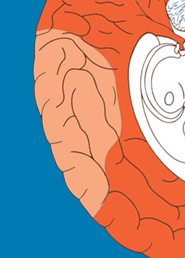- Home
- A-Z Publications
- Annual Review of Clinical Psychology
- Previous Issues
- Volume 17, 2021
Annual Review of Clinical Psychology - Volume 17, 2021
Volume 17, 2021
-
-
Resilience in Development and Psychopathology: Multisystem Perspectives
Vol. 17 (2021), pp. 521–549More LessResilience science in psychology and related fields emerged from clinical research on risk for psychopathology in the 1970s and matured over the ensuing decades with advances in theory, methods, and knowledge. Definitions and models of resilience shifted to reflect the expanding influence of developmental systems theory and the growing need to integrate knowledge about resilience across levels and disciplines to address multisystem threats. Resilience is defined for scalability and integrative purposes as the capacity of a dynamic system to adapt successfully through multisystem processes to challenges that threaten system function, survival, or development. Striking alignment of resilience factors observed in human systems, ranging from individuals to communities, suggests the possibility of networked, multisystem protective factors that work in concert. Evidence suggests that there may be resilience factors that provide transdiagnostic protection against the effects of adverse childhood experiences on risk for psychopathology. Multisystem studies of resilience offer promising directions for future research and its applications to promote mental health and positive development in children and youth at risk for psychopathology.
-
-
-
Designing Evidence-Based Preventive Interventions That Reach More People, Faster, and with More Impact in Global Contexts
Vol. 17 (2021), pp. 551–575More LessThis article demonstrates the substantial similarities globally among preventive, evidence-based interventions (EBIs) designed to address HIV by providing four examples: an HIV family-focused intervention, the Community Popular Opinion Leader intervention, a South African maternal/child health program, and an EBI for sex workers in India. Each identified the key problems in the target population, utilized well-established social cognitive theories, created processes for engaging the target population, set standards for staff accountability, and included routine data collection to facilitate iterative program improvements over time. Building EBIs based on these common, robust features is an alternative design strategy to replication with fidelity. These components provide a road map for researchers, especially those using new technologies, and for local providers seeking to deliver EBIs that match their clients’ and communities’ needs. Technology platforms and community organizations may serve as resources for designers of the next generation of EBIs, offering an alternative to repeatedly validating the same interventions and replicating them with fidelity.
-
-
-
Pathology in Relationships
Vol. 17 (2021), pp. 577–601More LessCommitted, long-term romantic relationships are ubiquitous among modern society. They are one of the most important contexts for the development, maintenance, and treatment of psychopathology. In this review, I first place psychopathology within the most commonly cited theoretical model of marital satisfaction and stability and then discuss how relationship satisfaction is conceptualized and assessed in this literature. In the second half of the review, I describe the theories regarding how romantic relationships may be connected to psychopathology. Relationship distress is easily incorporated into a diathesis–stress model as an important trigger for psychopathology. Next, I review cross-sectional research, longitudinal research, and treatment efficacy research linking relationship quality and psychopathology. I provide evidence for the robustness of these effects and areas where research must expand. I finish with a summary section that synthesizes what is known about the mechanisms linking relationship distress and psychopathology.
-
Previous Volumes
-
Volume 19 (2023)
-
Volume 18 (2022)
-
Volume 17 (2021)
-
Volume 16 (2020)
-
Volume 15 (2019)
-
Volume 14 (2018)
-
Volume 13 (2017)
-
Volume 12 (2016)
-
Volume 11 (2015)
-
Volume 10 (2014)
-
Volume 9 (2013)
-
Volume 8 (2012)
-
Volume 7 (2011)
-
Volume 6 (2010)
-
Volume 5 (2009)
-
Volume 4 (2008)
-
Volume 3 (2007)
-
Volume 2 (2006)
-
Volume 1 (2005)
-
Volume 0 (1932)

